 Life & Style
Life & Style

Việt Nam’s southernmost tip Năm Căn District in Cà Mau Province has earned a reputation as home to some of the finest female crabs in the country. The district’s crab farms are not only the go-to place for crab farmers in the Mekong Delta but also farmers nationwide.
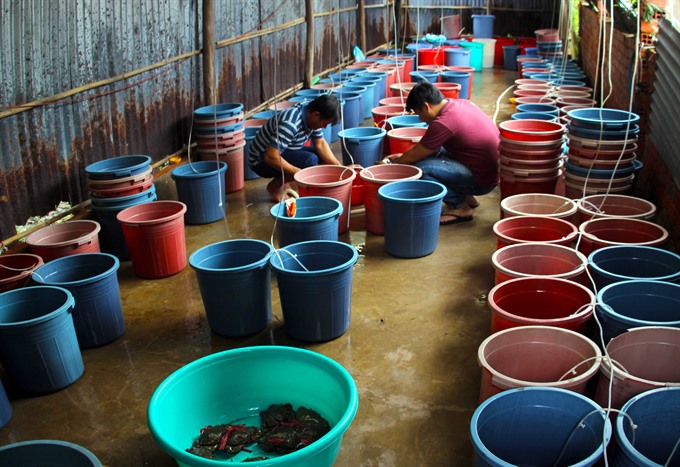 |
| Crabs in the bucket: Part of a crab farm with hundreds of buckets prepared for a new batch of female crabs. |
Việt Nam’s southernmost tip Năm Căn District in Cà Mau Province has earned a reputation as home to some of the finest female crabs in the country. The district’s crab farms are not only the go-to place for crab farmers in the Mekong Delta but also farmers nationwide.
Starting from just a few farms managed by a handful of families who wanted to use their unused land lots, female crab farming has become the district’s economic spearhead with dozens of farms employing hundreds of workers.
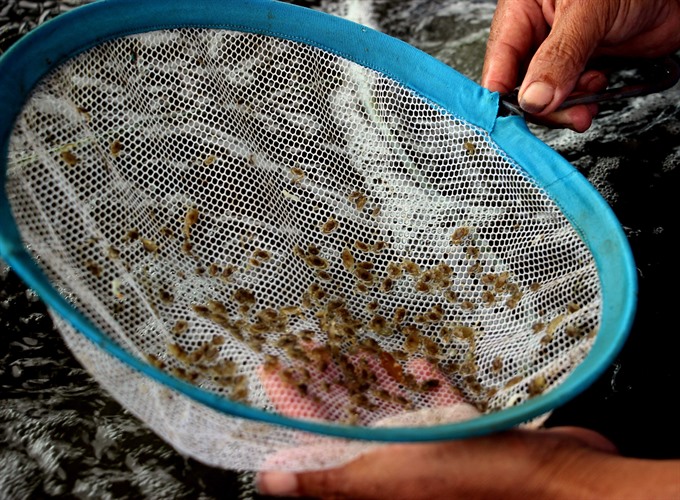 |
| Suppliers: Baby crabs in a nursery pond. Năm Căn crab farms produce tens of millions for the market on a monthly basis. |
Local farmers also organised their own local co-operative to pool resources for advanced farming technology and capital security.
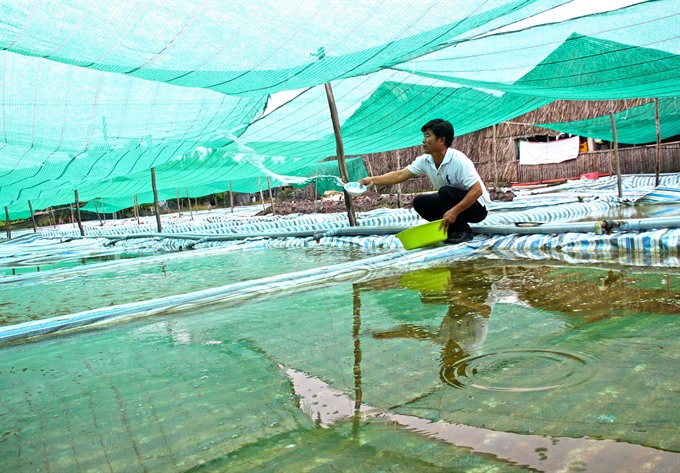 |
| Dinner time: A farmer feeds his crabs at a farm in Năm Căn District. |
One of the pioneers of the trade, Đoàn Văn Tuyên, head of the co-operative said it takes up to 15 days to raise his crabs before they are ready for sale. Tuyên and his family run more than 70 hatcheries, bringing a monthly income of US$600-800.
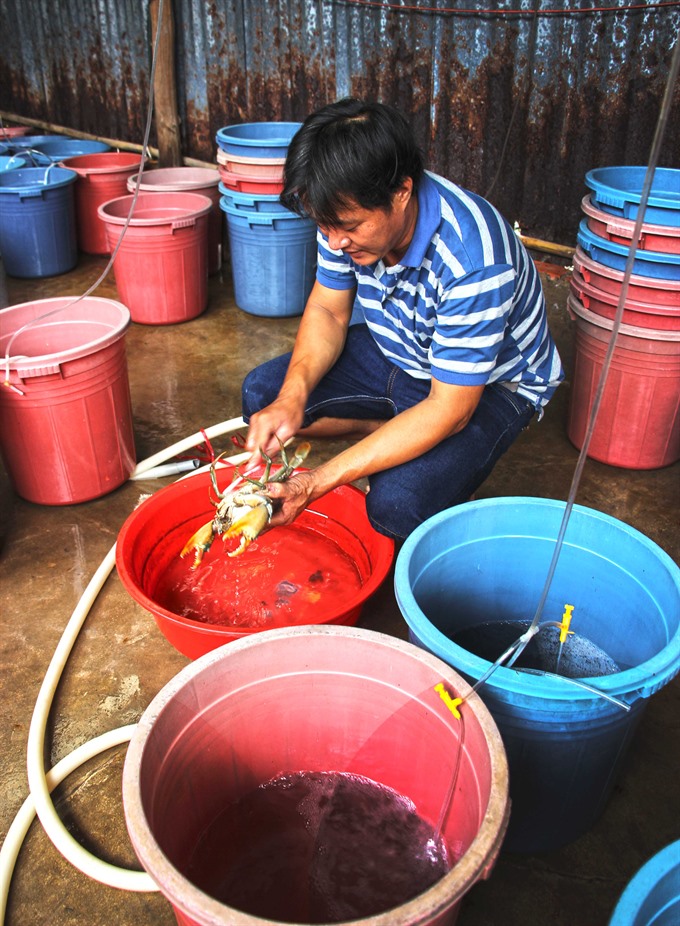 |
| Lucky ones: Chosen female crabs are cleaned and kept in separate buckets with ample oxygen. |
The process starts with farmers hand-picking healthy female crabs that weigh 450-600gr. They must later be cleaned and cared for in a bucket with ample oxygen.
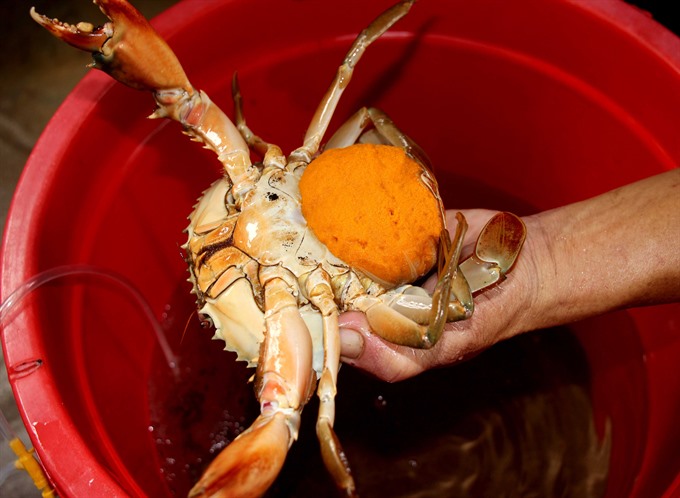 |
| Fine specimen: Farmers must make sure they hand pick the most healthy and fertile female crabs for optimal productivity. — VNA/VNS Photo Huỳnh Thế Anh |
According to the farmers, the district enjoys a significant advantage in crab farming due to its proximity to the sea. Water salinity is often stable at 25-30 per cent, ideal for raising crabs. There are also abundant sources of food for them in the area. — VNS




